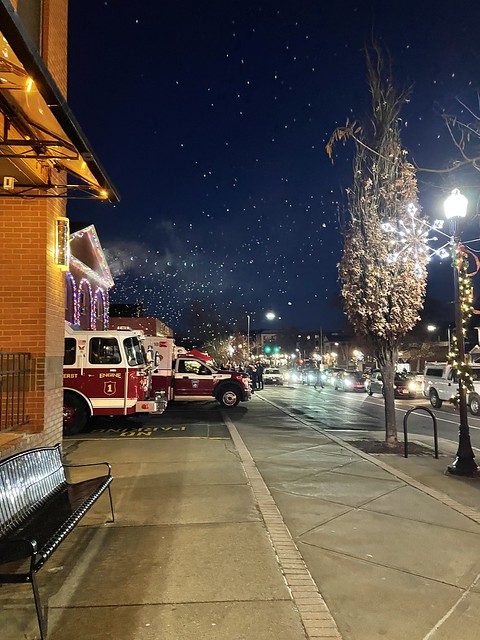I arrived in the peaceful, scenic town of Amherst, set in the Connecticut River Valley of Massachusetts and home of three schools of the renowned Five College Consortium1, in mid-August 2021 for a seven-month stay in the Anthropology Department at the University of Massachusetts as a Fulbright Schuman Professor Awardee. I had made the move from Lisbon, Portugal. And in August, the nights were still warm. I usually stayed on the porch until late, reading, listening to music, and observing daily life unfolding, first at a calm summer pace that got increasingly busier as neighbors and students returned for the new academic year. The Amherst region is fairly walkable, and its small town centre and the surrounding parks and woods are quite inviting for long inspirational walks. So, after the previous two years of extreme collective and personal stress due to immobility, fear, and solitude, caused by the pandemic and intensified by living in the city of Lisbon, I embraced the quietness of Amherst and the possibility of sitting outside and strolling around without the limitations that I had experienced in my apartment back in the city centre.
I came to UMass Amherst to start a new research line on middle-class migratory movements between the US and the EU and their impacts on the two regions’ political, economic, and cultural relations. My main goal for the stay was to gather data and review the existing literature on a relatively discrete research topic – American migrations, in general, and American middle-class migrations, in particular. Despite migration being one of the most vividly researched and publicly debated topics, various flows of human mobility tend to discretely fly under the academic and public radar. Especially if one exclusively uses the migration lens to view this type of movements. And yet, the number of Americans who are presently crossing the Atlantic to live in Europe is considerable — and consistently growing.
Why are these migration movements missing from the scientific agenda? How is exiting the US perceived by the American middle classes and which factors are triggering the present flows towards Europe? How is Europe perceived by these migrant populations and to what extent is it possible to incorporate them into an overall approach to European migration policies and realities?
The plan was to look for answers to these questions within the data and existing literature2 coupled with observations and maintain field notes on life in this particular community in an effort to discover push and pull factors in their lifestyles and life conditions. I think I always enjoyed people-watching. Observing everyday routines encourages me to thinking critically about collective and personal life. How people simultaneously build upon innovation, creativity, conservatism and prediction. This habit came in handy when I decided to become an anthropologist. People-watching, and my passion for walking while listening to music, always have been the best remedies for any mind, heart, and body aches. So, unsurprisingly, on my second day in, I created my #1 Amherst playlist and went out determined to buy food and explore my surroundings and the local population. From then on, I continued to walk around town, on campus and in nature while listening to music as regularly as I could.
Strolling through Amherst, photographing, filming, and talking with people became an unexpected yet noteworthy contribution to the research. The Omicron variant hit the East Coast during my stay and this reality impacted the number of direct interactions I could have with informants. Interviews were partially replaced by notes about the daily errands, and economic, political, and religious agendas of an affluent East Coast community, in search of potential subjects that could work as migratory triggers towards Europe. On my departure in March, there were five invaluable Amherst playlists on my phone. A sensorial frame for my research on transnational migration in a small American town.
1: The Five College Consortium: Amherst College (Amherst), Hampshire College (Amherst), Mount Holyoke College (South Hadley), and Smith College (Northampton).
2: I am extremely thankful to the W. E. B. Du Bois Library (UMass Amherst) for their efficiency and warm collaboration. Their resource collection was extremely useful and of remarkable quality.
Marta Vilar Rosales is a Portuguese 2021-2022 Fulbright Schuman Research Scholar in Anthropology to the University of Massachusetts, Amherst. Dr. Vilar Rosales is a Research Fellow at the ICS-UL. She received her doctorate in Anthropology in 2007 from NOVA, where she is an assistant professor. She has developed and coordinated ethnographic research in Angola, Mozambique, Canada, Brazil, Germany, Australia, and Portugal on contemporary migrations, material culture and everyday life. She is also interested in media anthropology in migratory contexts and food anthropology. She coordinates the PhD program on Migration Studies at ICS-UL and the research project TRANSITS – Material Culture, Migration and Everyday Life.
Articles are written by Fulbright grantees and do not reflect the opinions of the Fulbright Commission, the grantees’ host institutions, or the U.S. Department of State.



